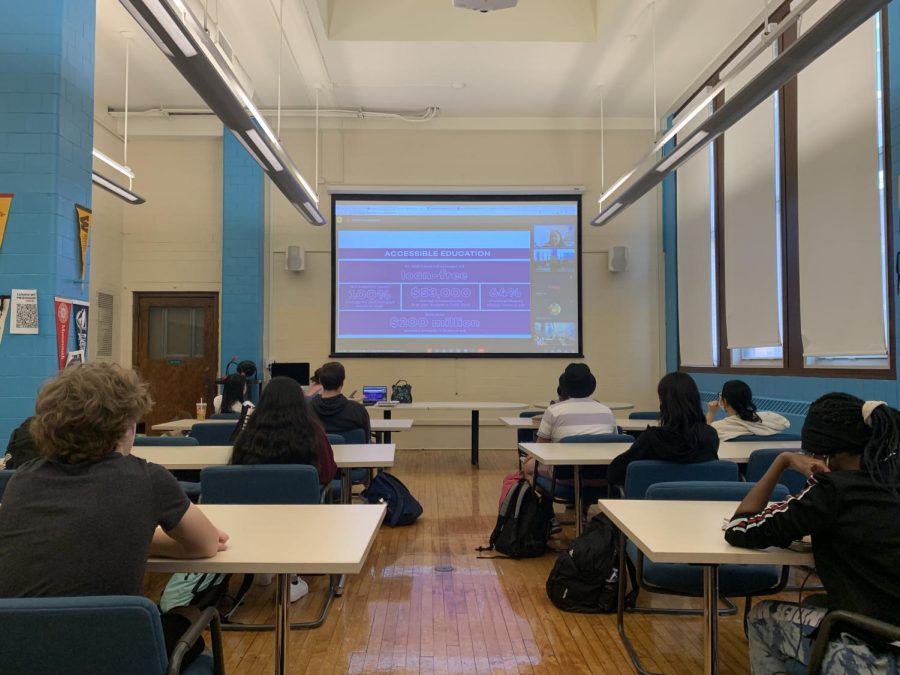By Evangeline Lacroix
Every Jan. 1, bills that are passed in the Illinois Congress in the previous year become law. A new law that is now in effect mandates that all Illinois school districts with sex education courses must change their curricula to teach students about contraceptives and STDs in addition to abstinence.
The teaching of contraceptive use has been required in CPS high schools since 2008. Lane’s policy in freshman health classes is to teach abstinence first with a supplement of contraception. Many students at Lane feel that this change to state curriculum is important for students across Illinois.
“Sex Ed is not about: ‘here are some condoms, so go out and have sex.’ It is more like:, ‘here is the condom, so if for some reason you manage to get laid, here it is so you will not get your girlfriend pregnant,’” said Mabel Escobar, Div. 480.
A prime example of the potential success of this new bill can be seen in California. The teen birth rate dropped 60 percent between 1991 and July of 2013 (as reported by California Department of Public Health). The drop occurred within every ethnicity and socio-economic level as well. Leaders in the CDPH attribute this to comprehensive sex education in public schools and community based programs that provide safe sex information to teens and their parents (as reported in a July 2013 Huffington Post article).
In Chicago, teen pregnancy rates dropped 33 percent from 1999 to 2009, yet Illinois still has the 25th highest pregnancy rate in the country. This new sex education law was put in place in the hopes that other regions in Illinois will be just as successful in dropping teen pregnancy rates.
The law is based on the idea that if students are taught the importance of safe sex, and how to effectively use contraceptives, more sexually active teens will use contraceptives.
“It should be the parents’ responsibility [to teach their kids],” said Nayelii Duran, Div. 477. “They don’t for whatever reason, be it [because] they feel awkward, they figure their kids will learn about it some other way, or they don’t want to, or they forget. It is not always going to be up to the parents. Teenagers have a lot of questions, they are just too afraid to ask, and I think adults who take the initiative, is really important.”
Because parents may not always involve themselves in their children’s sex education, teenagers are often left to learn from fellow students who could be misinformed.
“There are some people who think that xyz is true when it isn’t true,” said Jacqueline Pushman, Div. 462. “In my freshman year health class the teacher said ‘you can ask me whatever questions that you want, and try to be respectful of others people’s questions.’ There were some questions where I thought: how do you not know that? But there are people out there that don’t know things. It is better to hear from an adult than a friend about something you don’t know.”
Rather than comprehensive sex education, abstinence-only sex education is mainly taught in more conservative parts of Illinois.
“Abstinence only teaches you ‘yes, sex is bad. Don’t ever touch each other or touch yourself because bad things happen when you do that,’” Escobar said. “Because such an old view of sex education is taught [in some places], it really hurts kids. Students are taught that sex is bad, bad, bad. When contraceptives are taught in a way like ‘sex is good for some reasons, but it should not be done until a certain age. But if you do, here are the things that help protect you,’ it is more effective.”
The Center for Disease Control has found in a 2010 study that southern states that exclusively teach abstinence in sex education classes have a higher rate of teen pregnancy. The study found that sixty percent of teens in abstinence-only classes do not know the effectiveness of contraceptives such as birth control and do not use it even though many students are sexually active.
In a 2001 study by U.S. Department of Health and Human Services, researchers reported: “The most consistent and clear finding is that sex education does not cause adolescents to initiate sex when they would not otherwise have done.”




